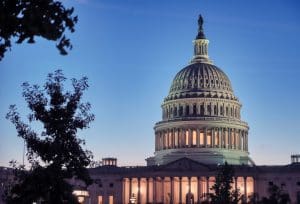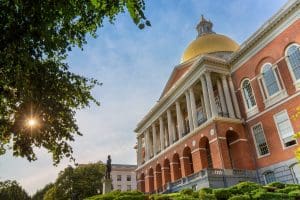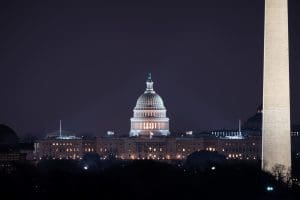The economic crisis caused by the coronavirus pandemic poses a triple challenge for tax policy in the United States. Lawmakers are tasked with crafting a policy response that will accelerate the economic recovery, reduce the mounting deficit, and protect the most vulnerable.
To assist lawmakers in navigating the challenge, and to help the American public understand the tax changes being proposed, the Tax Foundation’s Center for Federal Tax Policy modeled how 70 potential changes to the tax code would affect the U.S. economy, distribution of the tax burden, and federal revenue.
In tax policy there is an ever-present trade-off among how much revenue a tax will raise, who bears the burden of a tax, and what impact a tax will have on economic growth. Armed with the information in our new book, Options for Reforming America’s Tax Code 2.0, policymakers can debate the relative merits and trade-offs of each option to improve the tax code in a post-pandemic world.

Tighter Limits on U.S. Interest Deductibility Make U.S. an Outlier and Increase Pain of Rising Interest Rates
While there is disagreement about the amount of interest that should be deductible, it’s clear that the limit based on EBIT makes the U.S. an outlier compared to other countries across the OECD while raising the cost of new investment.
7 min read
A Tale of Two Tax Plans in the United Kingdom
History is clear. Lowering budget deficits via spending restraint frees resources for additional private output and jobs. Lowering them by raising taxes on business investment and labor services makes it harder to dis-inflate without a recession.
7 min read
How the Inflation Reduction Act and Pillar Two Could Shape the Future of EU Competitiveness
French President Macron is coming to Washington, D.C., this week to ask President Biden the question on the minds of European leaders: “Why did you do this to us?”
6 min read
States Should Make Full Expensing Permanent to Help Curb Inflation
In times of high inflation, states should consider adopting permanent full expensing because it boosts long-run productivity, economic output, and wages.
7 min read
EU “Fiscal Fairness”
Europe is facing difficult times. Governments are balancing the need for more resources with the need to maintain peace and prosperity domestically. To properly strike this balance, EU policymakers must incorporate “Fiscal Fairness” into the debate.
2 min read
Prospects for Federal Tax and Budget Policy after the 2022 Midterms
Two weeks after the 2022 midterm elections, it’s becoming clearer where tax policy may be headed for the rest of the year and into 2023. In the short term, Congress must deal with tax extenders and expiring business tax provisions that may undermine the economy.
5 min read
What to Expect in a Post-Flat Tax Massachusetts
On Election Day, a narrow majority of Massachusetts voters approved Question 1, also known as the Fair Share Amendment, which will transition the Commonwealth from a flat rate individual income tax to a graduated rate system.
7 min read
Shaky Economic and Fiscal Outlook Requires Stable and Pro-Growth Tax Extenders Policy
Policymakers face a difficult balancing act this year in what is likely to be an unusual tax extenders season.
6 min read
Difficult Trade-Offs Make Policy Consensus on Child Tax Credit Elusive
As we near this year’s “lame duck” session of Congress, there has been renewed interest in reforming the child tax credit as part of a tax deal. Our new analysis highlights the trade-offs that policymakers will face
5 min read
How the Inflation Reduction Act Affects the Future of U.S.-EU Tax and Trade Cooperation
the Inflation Reduction Act gives us a glimpse into a future where the U.S. and EU opt for protectionist tax and trade policies rather than implementing principled tax policies and reducing trade barriers between allies.
5 min read